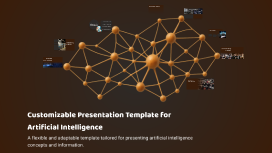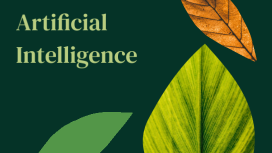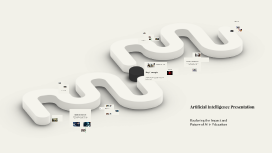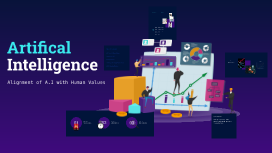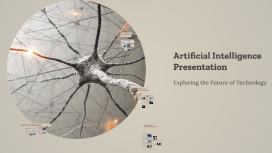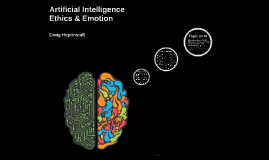Artificial Intelligence Presentation
Transcript: How AI Works Neural Networks Overview Machine Learning Explained Neural Networks simulate the human brain's interconnected neurons to process complex data. They consist of layers that transform input data through weighted connections, making them effective for tasks such as image recognition and language translation. Machine Learning (ML) is a subset of AI that enables systems to learn from data and improve over time without explicit programming. Algorithms analyze patterns within data to make predictions or decisions, exemplified by recommendations on streaming services based on user behavior. Natural Language Processing Computer Vision Basics Computer Vision empowers machines to interpret and analyze visual information from the world. Techniques include image recognition, object detection, and facial recognition, widely utilized in security systems and autonomous vehicles. Natural Language Processing (NLP) enables machines to understand and interact with human language. Used in applications like chatbots and virtual assistants, NLP techniques involve parsing, sentiment analysis, and language generation to create meaningful conversations. Data Training and Algorithms Data training is the process of teaching machines to recognize patterns using training datasets. Algorithms, such as supervised and unsupervised learning, determine how effectively a model can learn, impacting the quality of outputs in AI applications. Artificial Intelligence Presentation Exploring the Future of Technology The Future of AI: Transforming Tomorrow Emerging Trends in AI Technology AI in Everyday Life Key trends include advances in machine learning, improved natural language processing, and the integration of AI in IoT devices. Additionally, AI's role in automating tasks is expanding across sectors, indicating significant advancements in the coming years. AI is increasingly embedded in daily activities through virtual assistants, recommendation algorithms, and smart home devices. These technologies enhance user experience and improve personal efficiency, making AI an integral part of modern living. Regulatory and Governance Frameworks Potential Impact on Global Economy As AI technologies advance, establishing regulatory frameworks is crucial to ensure safety, privacy, and ethical considerations. Governments and organizations must work together to create guidelines that promote innovation while protecting society. AI has the potential to contribute trillions to the global economy, by increasing productivity and creating new markets. However, this growth must also consider the implications of job displacement and workforce adaptation. Concluding Remarks on AI's Role in Society AI is set to revolutionize various aspects of society, influencing everything from healthcare to transportation. As its impact grows, the balance between embracing innovation and ensuring ethical implications must be carefully navigated by all stakeholders. Benefits and Challenges of AI Introduction to Artificial Intelligence Advantages of AI Implementation Job Displacement Concerns AI enhances productivity and efficiency across sectors by automating routine tasks, thus allowing human workers to focus on complex problem-solving. Industries like healthcare and finance experience improved decision-making and accuracy due to data-driven insights. The automation capabilities of AI could lead to significant job displacement across various sectors. According to a McKinsey report, up to 800 million global workers may be displaced by 2030, making reskilling essential. Addressing Bias in AI Systems Ethical Considerations Bias in AI systems can lead to unfair outcomes, particularly in areas like hiring and law enforcement. Ongoing research aims to develop techniques to identify and mitigate biases, ensuring fairness in AI applications. Data Privacy Issues Definition of AI AI deployment raises ethical questions regarding responsibility and accountability. Issues such as transparency, consent, and decision-making biases highlight the need for a robust ethical framework to ensure equitable AI use. As AI systems require vast amounts of data, privacy concerns arise. High-profile breaches underscore the importance of implementing robust data protection protocols to safeguard user information. Artificial Intelligence refers to the simulation of human intelligence in machines designed to think and act like humans. AI encompasses learning, reasoning, problem-solving, perception, and language understanding. Types of AI AI can be categorized into three main types: Narrow AI, which performs specific tasks; General AI, with human-level intelligence; and Superintelligent AI, surpassing human capabilities. Currently, most applications utilize Narrow AI. History of AI Development The concept of AI dates back to ancient mythology, but significant development began in the 1950s with pioneers like Alan Turing. The field has evolved through various waves of optimism and technological






